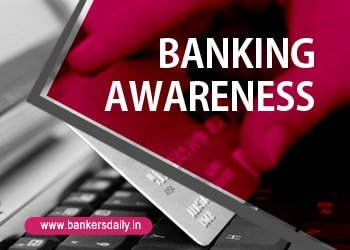Banking Awareness : Quiz 03
Banking Awareness : Quiz 03
Q.1) Credit Card can be issue by:
a) Bank only
b) Stores only
c) Service Provider (e.g. Airline)
d) All of The Above
Q.2) Credit Cardholders normally must pay for credit card purchases within _____days of purchase:
a) 30 days
b) 15 days
c) 45 Days
d) None of The Above
Q.3) Top 5 credit cards issuer in India are:
a) PNB, SBI, ICICI, Standard Chartered Bank, Allahabad Bank
b) American Express, Citi Bank, PNB, SBI, Andhra Bank
c) ICICI, HDFC, SBI, Citi Bank, American Express
d) None of The Above
Q.4) Which among the following is incorrect about Credit Cards:
a) Credit cards offer the easiest ways to borrow money
b) It is beneficial for short term borrowing
c) If a person cannot afford to pay balances in full before the due date, he is shooting himself in the foot by borrowing on the card
d) None of The Above
Q.5) The concept of using a card for purchases was described in ___:
a) 1855
b) 1887
c) 1877
d) None of The Above
Q.6) The term credit card was first time used by:
a) Edward Binni
b) Edward Bellamy
c) Edward Bamulson
d) None of The Above
Q.7) Which among the following is correct about the Grace Period:
a) the time in which cardholders has to pay the balance before interest is assessed on the outstanding balance
b) Grace period may vary, but usually range from 20 to 55 days depending on the type of credit card and the issuing bank
c) All of The Above
d) None of The Above
Q.8) If a cardholder is late paying the balance, finance charges will be calculated and the grace period _____:
a) Start apply
b) does not apply
c) None of The Above
Q.9) Q116. Business Credit Cards are:
a) Specialized credit cards issued in the name of a registered business
b) can be used only for business purpose.
c) Both of The Above
d) None of The Above
Q.10) Compared to debit cards and cheques, a credit card allows:
a) small short-term loans to be quickly made to cardholder
b) small short term loans are made to cardholder and he need not calculate a balance remaining before every transaction
c) total charges do not exceed the maximum credit line for the card
d) All of The Above
Q.11) NPCI stands for:
a) National Commission for Payment Information
b) National Payment Corporation of India
c) National Payment Commission of India
d) None of The Above
Q.12) Which among the following is correct
a) RuPay is a combination of two words – Rupee and Payment
b) RuPay Card is an Indian version of credit/debit card
c) RuPay Card is very similar to international card such as Visa/Master
d) All of The Above
Q.13) Fiscal Policy deals with the ______and ______decisions of the government:
a) Incomes and Expenditures
b) Taxation and Expenditures
c) Trading and Expenditures
d) None of These
Q.14) In most modern economies, the government deals with fiscal policy while the ________is responsible for monetary policy:
a) Government
b) SEBI
c) Central Bank
d) None of These
Q.15) Fiscal Policy is composed of several parts which includes:
a) Tax Policy and Expenditure Policy
b) Investment or Disinvestment Strategies
c) Debt or Surplus Management
d) All of the Above




